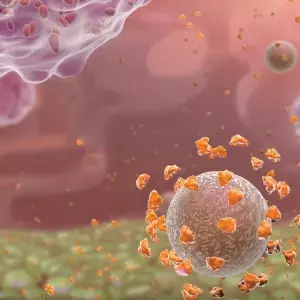- Home
- Medical news & Guidelines
- Anesthesiology
- Cardiology and CTVS
- Critical Care
- Dentistry
- Dermatology
- Diabetes and Endocrinology
- ENT
- Gastroenterology
- Medicine
- Nephrology
- Neurology
- Obstretics-Gynaecology
- Oncology
- Ophthalmology
- Orthopaedics
- Pediatrics-Neonatology
- Psychiatry
- Pulmonology
- Radiology
- Surgery
- Urology
- Laboratory Medicine
- Diet
- Nursing
- Paramedical
- Physiotherapy
- Health news
- Fact Check
- Bone Health Fact Check
- Brain Health Fact Check
- Cancer Related Fact Check
- Child Care Fact Check
- Dental and oral health fact check
- Diabetes and metabolic health fact check
- Diet and Nutrition Fact Check
- Eye and ENT Care Fact Check
- Fitness fact check
- Gut health fact check
- Heart health fact check
- Kidney health fact check
- Medical education fact check
- Men's health fact check
- Respiratory fact check
- Skin and hair care fact check
- Vaccine and Immunization fact check
- Women's health fact check
- AYUSH
- State News
- Andaman and Nicobar Islands
- Andhra Pradesh
- Arunachal Pradesh
- Assam
- Bihar
- Chandigarh
- Chattisgarh
- Dadra and Nagar Haveli
- Daman and Diu
- Delhi
- Goa
- Gujarat
- Haryana
- Himachal Pradesh
- Jammu & Kashmir
- Jharkhand
- Karnataka
- Kerala
- Ladakh
- Lakshadweep
- Madhya Pradesh
- Maharashtra
- Manipur
- Meghalaya
- Mizoram
- Nagaland
- Odisha
- Puducherry
- Punjab
- Rajasthan
- Sikkim
- Tamil Nadu
- Telangana
- Tripura
- Uttar Pradesh
- Uttrakhand
- West Bengal
- Medical Education
- Industry
Synovial-Based Tests Outperform Serum Markers to Rule Out Infection in Total Joint Arthroplasties

Total knee arthroplasty (TKA) provides successful results in most patients. Periprosthetic joint infection (PJI) accounts for up to 25% of failed TKAs needing revision. In the clinical workup for revision TKA and revision total hip arthroplasty (THA), the differentiation between septic and aseptic failure is important because both surgical and postoperative treatment strategies differ substantially. In clinical practice, consensus in diagnostic strategy for excluding or diagnosing PJI is still lacking.
A literature search by A. Goud et al in EMBASE, MEDLINE, PubMed, and Cochrane was conducted. Studies involving the diagnosis of PJI in patients with failed TKAs and total hip arthroplasties needing revision were identified. Only studies using the Musculoskeletal Infection Society criteria were included. Quality was assessed using MINORS criteria.
Meta-analysis was performed for each diagnostic test identified in the included studies. Pooled estimates of diagnostic accuracy measures were calculated using a bivariate model and plotted in summary receivereoperator characteristic curves. Positive and negative predictive values were calculated in a hypothetical sample of patients with a given disease prevalence.
Twenty-four studies met the inclusion criteria, describing a total of 2974 patients.
Quality scores ranged from 13 to 19.
Meta-analysis could be performed on 7 unique diagnostic tests.
Highest pooled sensitivity and specificity were demonstrated for alpha-defensin with values of 86% and 96.6%, respectively.
alpha-defensin and white blood cell count in synovial fluid demonstrate highest negative predictive value values.
Alpha-defensin and WBC in synovial fluid are accurate tests for ruling out PJI in patients who underwent TKA or THA. In particular, these tests are able to confidently rule out PJI in a clinical setting with low to intermediate prevalence. Therefore, in a clinical setting with low to intermediate prevalence of PJI, the authors recommend performing arthrocentesis and joint fluid analysis using a-defensin and/orWBC count before revision TKA or THA surgery for ruling out PJI.
Further reading:
Synovial-Based Tests Outperform Serum Markers to Rule Out Infection in Total Knee Arthroplasty and Total Hip Arthroplasty: A Systematic Review and Meta-Analysis
Annemarie Goud, Don Nützinger, Akke van der Bij, Kevin Jenniskens, Joel Groenewold, Arthur de Gast, Joris E.J. Bekkers,
The Journal of Arthroplasty 37 (2022) 802e808
https://doi.org/10.1016/j.arth.2021.12.020
MBBS, Dip. Ortho, DNB ortho, MNAMS
Dr Supreeth D R (MBBS, Dip. Ortho, DNB ortho, MNAMS) is a practicing orthopedician with interest in medical research and publishing articles. He completed MBBS from mysore medical college, dip ortho from Trivandrum medical college and sec. DNB from Manipal Hospital, Bengaluru. He has expirence of 7years in the field of orthopedics. He has presented scientific papers & posters in various state, national and international conferences. His interest in writing articles lead the way to join medical dialogues. He can be contacted at editorial@medicaldialogues.in.
Dr Kamal Kant Kohli-MBBS, DTCD- a chest specialist with more than 30 years of practice and a flair for writing clinical articles, Dr Kamal Kant Kohli joined Medical Dialogues as a Chief Editor of Medical News. Besides writing articles, as an editor, he proofreads and verifies all the medical content published on Medical Dialogues including those coming from journals, studies,medical conferences,guidelines etc. Email: drkohli@medicaldialogues.in. Contact no. 011-43720751


